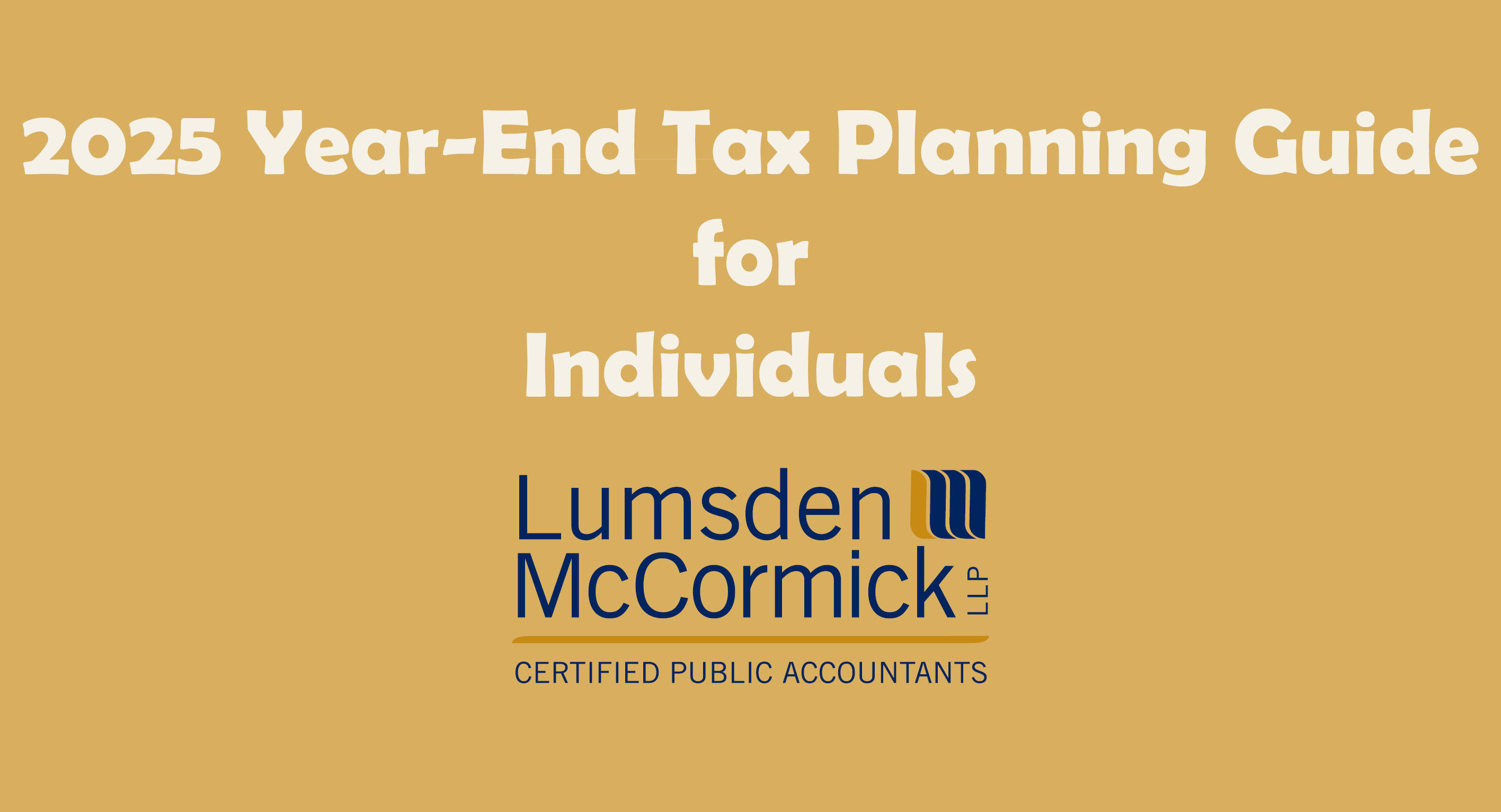Family Wealth and Estate Planning Articles
How USPS Postmark Updates May Affect Mail Deadlines in 2026
Posted by Amanda Wojtkowski on January 15, 2026
Under the "Delivering for America" plan, the USPS has clarified that postmarks added to mail do not reflect a mailing date, they reflect a processing date. This has implications for the way time-sensitive mail, including tax return and tax payments, is received by federal agencies.
2025 Year-End Tax Planning Guide for Individuals
Posted by Cheryl A. Jankowski on December 08, 2025
As year-end approaches, individuals must prepare to review their 2025 tax situation. Our annual year-end guide highlights key opportunities and important updates that can lower tax liability and strengthen long-term financial planning.
Maximize Your Gift Tax Annual Exclusion
Posted by Isabella Newman on December 04, 2025
The gift tax annual exclusion lets you give up to $19,000 per recipient in 2025 (and 2026) tax-free, helping reduce your estate tax liability. Married couples can double this amount through split gifts, but remember the deadline is December 31 and certain gifts require IRS reporting. For larger gifts, you can use your lifetime exemption, and some payments—like tuition or medical expenses made directly—are always tax-free.
Pair a Living Trust with a Pour-Over Will
Posted by D’Marie Kleeman on November 26, 2025
Pairing a living trust with a pour-over will create a comprehensive estate plan that ensures all assets are managed and distributed according to your wishes. The living trust streamlines transfers and avoids probate for most assets, while the pour-over will act as a safety net for anything left out, maintaining consistency and privacy. Together, they offer flexibility, reduce stress for loved ones, and help prevent costly delays.
Plan Ahead for End-of-Life Arrangements
Posted by Amanda Wojtkowski on November 20, 2025
Planning your funeral and memorial arrangements in advance can ease emotional and financial stress for your loved ones. By documenting your preferences and considering payment options—such as prepaid plans or a payable-on-death account—you ensure your wishes are honored and incorporated into your estate plan. Thoughtful preparation today provides clarity and peace of mind for your family.
QTIP Trust for Blended Families
Posted by Robert Ingrasci on November 13, 2025
A QTIP trust is an estate planning tool designed to provide financial security for a surviving spouse while preserving assets for designated beneficiaries, such as children from a prior marriage. It offers flexibility and potential estate tax benefits by deferring taxes until the second spouse’s death. This approach helps blended families achieve fairness and clarity in their long-term plans.
Ensuring Access to Estate Planning Documents
Posted by D’Marie Kleeman on November 06, 2025
Making sure loved ones can easily access estate planning documents is essential to avoid stress and legal complications. Store originals, especially your will, in a secure, accessible location and share details with trusted family members or advisors. Clear communication about where documents are kept ensures your wishes are carried out smoothly.
The Benefits of a Residuary Clause in Your Will
Posted by Isabella Newman on October 30, 2025
A residuary clause in a will ensures that any assets not specifically mentioned—such as forgotten accounts or newly acquired property—are distributed according to your wishes. Without it, those assets may be subject to state intestacy laws, potentially leading to legal complications and family disputes. Including this clause adds flexibility and peace of mind by safeguarding your estate against future uncertainties.
The Importance of Financial Power of Attorney
Posted by Amanda Ornowski on October 16, 2025
A financial power of attorney ensures someone you trust can manage your finances if you become incapacitated, avoiding costly court proceedings. You can choose between a springing POA, which activates under specific conditions, or a durable POA, which takes effect immediately and allows for quicker action in emergencies. Pairing it with a health care POA and updating both regularly helps protect your wishes and your family’s peace of mind.
Don’t Let Beneficiary Designations Derail Your Estate Plan
Posted by D’Marie Kleeman on October 02, 2025
Beneficiary designations can override your will or trust, potentially disrupting your estate plan and causing unintended consequences. By naming both primary and contingent beneficiaries, updating them as life changes, and considering government benefit implications, you can ensure your assets are distributed according to your wishes and avoid unnecessary legal or financial complications.











